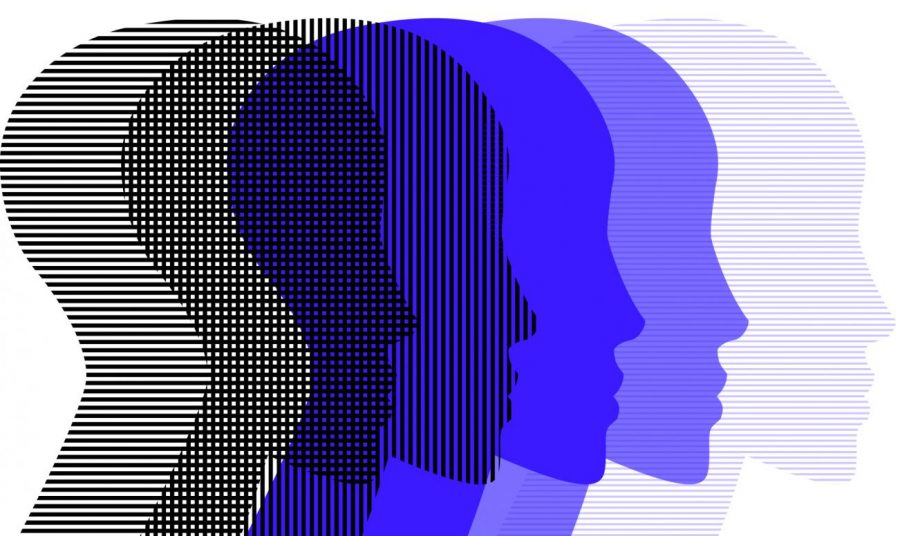Depersonalization and Derealization: A common symptom of anxiety or PTSD
December 16, 2019
Content warning: This story contains language that pertains to mental health and suicide.
My mind keeps jumping to different places right now, and I don’t feel normal. I tried to search it up online, and I looked at my medication manual, but I couldn’t find anything about what’s wrong with me. I think I’m going insane. I keep remembering random things, and my thoughts are jumping. My knees feel weird, and I can’t always remember my last thought or word as I’m writing. Like the memory that just happened disappears and then immediately comes back. I keep thinking I’ll wake up from this nightmare. Am I dying? Is this a dream? I’m definitely not in a normal state of mind. Also, my senses aren’t doing well. Sometimes I can’t feel my body as much or hear anything. Something is very wrong with me right now. Also, sometimes one part of my body feels numb. I literally cannot remember what just happened and what’s real and what really happened. I also can’t get the definition of time. I feel like dying is the only way to wake up from this nightmare.
I started journaling at the beginning of this year when my mental health began deteriorating. Above is my journal entry from the first time I dissociated. I was beyond terrified. I thought I was going insane or dreaming. In my head, I convinced myself that the only way to wake up from this “nightmare” was to kill myself. It got to the point where I went downstairs to my kitchen to find a knife, but luckily, I rationalized in my head that this experience may not have been a dream. I ended up walking back to my room to try to sleep so I could “wake up” again, but the next morning I woke up still living in a dream. It lasted for around two and a half days. Little did I know I wasn’t going insane, I was dissociating — a common symptom of anxiety.
Dissociation is when someone feels disconnected from reality — making it feel as if you or your surroundings aren’t real — creating distorted time perception as well as major gaps in memory. For example, when I dissociate and walk to a new room, I freak out and have another panic attack because I can’t remember how I got to the new place. A brain dissociates itself from its surroundings or body to reduce anxiety and calm down. But if the person freaks out from the dissociation because they don’t understand what’s happening, it can make the dissociation last longer and more severe. These episodes of dissociation can last from minutes to hours to days to even months.
This common symptom of anxiety isn’t known to most people, but according to the National Alliance on Mental Health, up to 75% of people will have at least one derealization or depersonalization experience in their lifetime — usually before the age of 30.
There are two main types of dissociation for anxiety: depersonalization and derealization. Depersonalization is when people have recurring episodes of feeling disconnected from themselves, so their hands or feet don’t feel like their own. When they look in the mirror, they don’t feel like themselves or they feel like they can’t control their body. It feels like they’re watching themselves from the outside, as if they’re an audience member at a movie.
Derealization is persistent feelings of detachment from their environment and surroundings. This is what I usually go through. People can get dizzy, and the whole room can look warped. They may feel like they’re living in a dream or as if they’re in a bubble, separated from the rest of the world. Time doesn’t seem real, and it feels like everything is either slowed down or moving too quickly.
Drugs, severe anxiety, trauma, physical abuse, panic attacks or just extreme stress are common causes and triggers of dissociation. Personally, I dissociate because of my anxiety. I was diagnosed with severe anxiety earlier this year, and it’s gotten worse as more stress has built up in my life. Everytime I hear bad news or I’m in a quiet room thinking about my own problems, I go through an episode of derealization. Honestly, I’ve learned the hard way that my life and the people around me won’t stop because of my anxiety and derealization, but I’ve learned how to help myself during my episodes.
Whenever I find myself having a moment of derealization, in my head, I try to recognize it. Once I recognize it — if I can — I’ll walk myself down to a counselor’s office and sit in a corner. Something that helps me get out of an episode is focusing on a single object and describing it with as many details as possible. Focusing on the smaller details reminds me that the object is real, so I know I’m in reality.
Another thing that helps is what psychologists call the five senses technique: find five things to see, four things to touch, three things to hear, two things to smell and one thing to taste. Usually during dissociation, one loses touch with some senses; this technique, however, forces the brain to focus on each sense, and it centers the body back to reality.
Dissociation is one of the most common symptoms of anxiety, but very few people seem to know about it. I wanted to write this article for anyone struggling with any kind of dissociation. Know that you’re not crazy. Know that you’re not alone. But also know that if you’re experiencing this, it can be beneficial to talk to a professional such as a therapist or a counselor. These episodes don’t mean you’re crazy, but they might be an indicator that you should reach out for help.
And if you know someone going through something like this, allow them to talk about their problems without any judgment. We can’t control mental illness: It’s not a mindset, it’s not a choice, it’s part of your brain.







